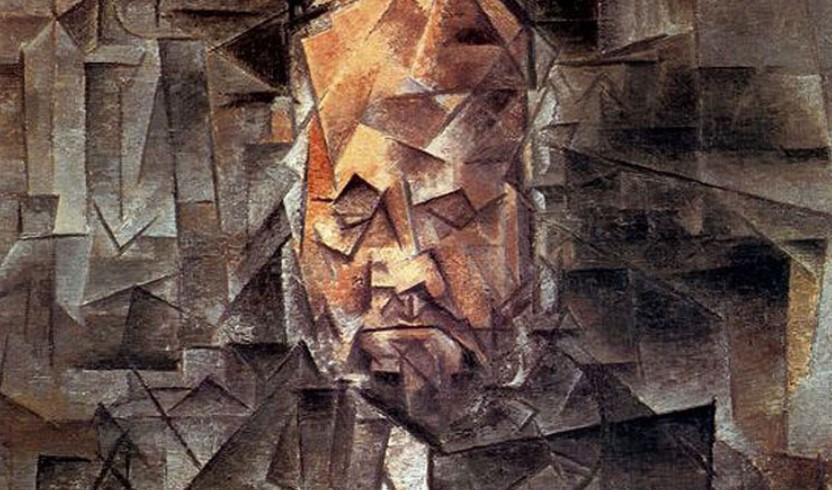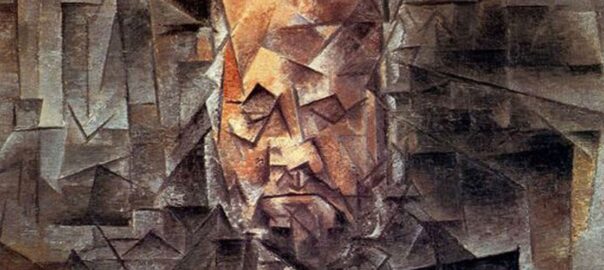
The Many Facets of Our Mind
Portrait of Ambrose Vollard, Pablo Picasso
It seems reasonable that we should know our own mind. But what we know is just one small aspect related to the controlling functions of consciousness. We are far less aware of other equally important parts of the brain.
The content of this section, unless indicated, represents Robert Ornstein’s award-winning Psychology of Evolution Trilogy (God 4.0, The Evolution of Consciousness and The Psychology of Consciousness) and Multimind. It is reproduced here by kind permission of the Estate of Robert Ornstein.
“I know my own mind” is an idea we often have. Or we may say, “My mind’s made up about this.” It seems reasonable that we should know our own mind, and we do, certainly better than others. But we don’t know it directly or very well, with any more ease or precision than we know how our pancreas is functioning. “Know thyself” is probably more difficult than we had imagined, Plato excepted. But the self does have a special place. It contributes most to the top level of the mind, the controlling functions of consciousness. Our ordinary speech is close to an accurate description here, as we speak of self-consciousness, self-understanding, and self-observation as important talents and disabling factors in a person’s makeup. But the self, although privileged, is more isolated than we would have ordinarily imagined. It is just another independent talent of the mind. It has less special access to other equally important parts of the brain than we think.
There exist different centers of mind in the brain and “we” often don’t know what we’re doing until we see what we do. Nonconscious routines lead us automatically, and thus unconsciously, along lines of thinking and action without our ever directing them.
Suppose someone asks you to move your right index finger sometime in the next minute without planning to do it at any specific time. Just move it spontaneously. Now what would you say if a neuroscientist could note your brain’s activation and predict when you were about to move your finger before you could? This flies in the face of our normal belief that our conscious selves are in immediate control of our behavior. Although, to us, it seems that all our movements are planned and initiated.
Think about this. It takes about two seconds to say quickly, “I am going to pick up this pencil now,” that is about as much time as your pencil-moving mind spends preparing the action. How is it then that you respond in less than two seconds when, for example, the car ahead of you stops suddenly? The answer is that, of course, you can react more quickly than in two seconds depending on who you think you are. Decisions about quick reactions are necessarily delegated to parts of our mind operating below consciousness.
A “spontaneous” act therefore begins before we are aware that we have “decided” to act. The decision, then, is often not up to “us,” our conscious selves. Rather, we watch a part of our minds begin actions, “on their own authority,” and can sometimes veto the orders before they make it out to the muscles. This anecdote illustrates the value of the conscious self in monitoring behavior:
Three men are about to be hanged, a Frenchman, a German and an Englishman. The French man steps up and is put in the noose, but when the signal is given, the trap doesn’t open. By custom, if the execution fails, he is freed. The German steps up, sees what happened, looks down at the trap, and understands what was wrong, He laughs and hurries to get hanged, the trap doesn’t open. The Englishman is put forward. On his way up, he says: “I think that hinge needs oiling and de-rusting.” It did.
Our Englishman on the way to be hanged would be well advised to veto consciously his automatic advice-giving mind. But different men and women don’t have the same set of minds, and those with particular abilities don’t always use them in the proper circumstances. Some, like the Englishman in the story, can’t prevent their mind from acting on their ability.
We do not possess one great teeming unconscious, but instead we have a system of many small unconscious minds, each with its own program. We are each somewhat like a multiple personality, organized and controlled to a limited extent by the conscious self.
Studies of the origins of decisions to act show how two different components of mind can act independently or in concert. An unconscious decision center may decide to initiate an action, then there’s a period of time during which the conscious self can choose to stop the action. Consciousness, the center of the mind brain/system, may well have “negative options” on our actions, vetoing the proposals of the separated minds. However, it does not control or even know about the origin of these action-ideas, and may be, in the same way that the left hemisphere is ignorant of the doings of the right—which we’ll discuss later—it’s unable to “tell” why one of the minds has done something.
This is why people will say, “How do I know what I think until I hear what I say?” We do not possess one great teeming unconscious, but instead we have a system of many small unconscious minds, each with its own program. We are each somewhat like a multiple personality, organized and controlled to a limited extent by the conscious self.
The delay between events in the world and the brain’s decision to let us know about them may mean that any fast (quicker than half a second) responses to events in the environment must happen before the stimulus reaches conscious levels. Thus, we react to many things of which we are not even conscious especially when operating at our limits, where fractions of a second are essential to performance. For example, consciousness can reach its limits when a world driving champion moves at breakneck speed or a concert pianist moves her fingers at a breathtaking rate or in anyone else whose skill requires finesse in timing measured in tenths of a second. When we are operating at the limit, we may become aware that we cannot consciously control our actions and still function at peak. Another mind takes over and doesn’t ask questions, doesn’t require any conscious direction.
Our every action is initiated unconsciously, with the later permission or veto of consciousness, and we usually have no “need” to be aware of this.
Not only is much of our behavior nonconscious, but the popular and deep-rooted belief that the human mind is one unified entity is a mistake. As we saw at the beginning of this section, we evolved from different hominid species that roamed the earth hundreds of thousands of years ago. Unsurprisingly our mental apparatus is an amalgam of evolutionary developments, some with very different circuits designed for our survival in a vastly different environment. We have, in fact, a “multimind.”

